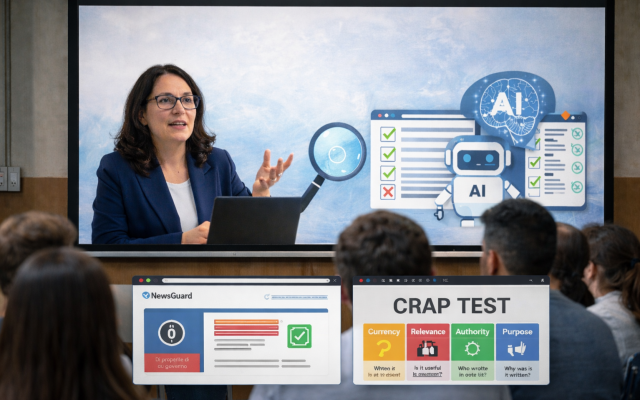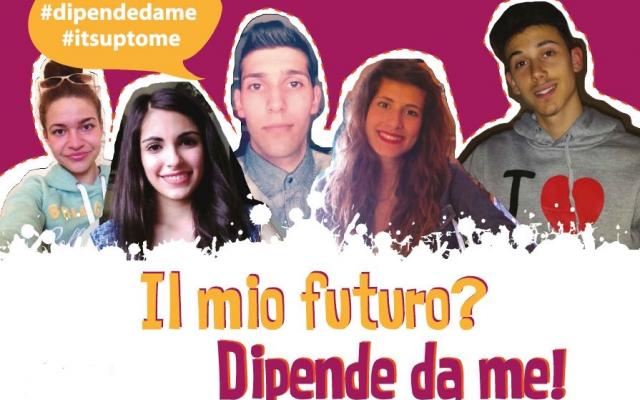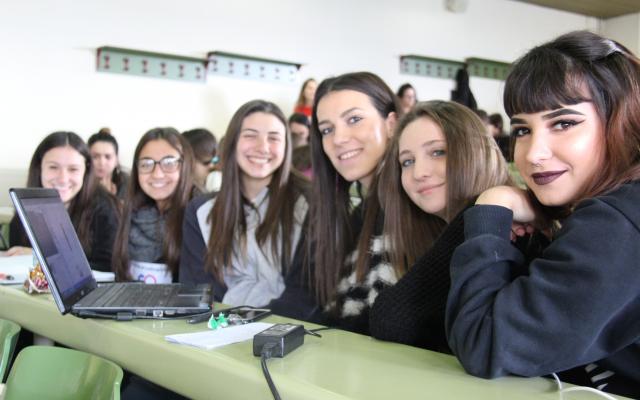Results of the creathon on data science held at the University of Milan.
Yesterday, at the University of Milan, over 40 students from two upper secondary schools – the Falcone-Righi in Corsico and the Schiaparelli-Gramsci in Milan – participated in the challenge to analyse a data set using R, the free software environment for statistical calculations and graphics. “We asked the students to find a dataset on a topic that interested them and then analyse it with a critical approach. The latter aspect was particularly important. So, we encouraged them to dissect commonplaces (given ethnic groups and age groups make a larger use of drugs, the perception of the crime rate, etc.) through statistics and graphics. Once they selected the dataset, we asked them to develop a series of questions and then showed them how extract the answers with R. The presentation and narration they decided to pursue was up to the students,” explains Cecilia Stajano who, due to a health issue, was connected in remote.
The challenge was coordinated by Statistics Professor Silvia Salini, who was also publicly thanked by Marilisa D’Amico, Deputy Rector for Legality, Transparency, and Equal Rights, who described her as “very good and untirable.”
The creathon, which focused on data science, a key subject for the comprehension and analysis of contemporary phenomena, is one of the appointments organised by “Paradoxes in Statistics and We Are the Data,” launched and coordinated with the Italian Statistics Society, which has also been adopted by many Italian universities. Statistics is not just a subject to study. It’s a tool for interpreting the reality around us. Through the analysis of data, the students, aided by qualified coaches, professors, and university students, discovered how numbers can influence key decisions in any sector.
The Falcone Righi students were coached by Ikram Ait, Taleb Naser, and Aidana Akkaziyeva, and supported throughout the course by their Professor, Paola Pupilli. “Ten years ago, the first Coding Girls event took place at our school. It’s a project that we love,” explains Prof. Pupilli. “The approach that young women have towards STEAM is important to complete the male approach to data. Women have sensitivity, logic, and rationality. And this year, they gave us great satisfaction.”
The Schiaparelli Gramsci students from Milan were coached by Niccolò Cibei and Julia Maria Wdowinska with Prof. Sabrina Daverio. “Thanks to the Fondazione Mondo Digitale, we try to provide a different approach to this subject,” explains Prof. Daverio. “The students learned to work in groups under stressful conditions, with priorities. I hope this challenge helped them understand the objective and conclusions of future choices.”
The student works were evaluated by a jury composed by:
- Lorena Viviano, Researcher, ISTAT
- Luca Tremolada, Journalist, Il Sole 24 Ore, Infodata
- Valentina Spinella, ISTAT
- Lia Coniglio, Director, ISTAT
- Rina Camporese, ISTAT
- Marta Campagnoli, recent Data Science graduate
- Marco Chiappa, 1st-level Technologist, Development of Economics, Management, and Quantitative Methods
The following awards were presented:
Best Graphics
Happiness Report - Team Mission Impossible, Schiaparelli Gramsci
Team members: Sofia Frimaio, Hazzen Rovedillo, Jennifer Bustamante, Hu Haiming, Brigida Fernando
The project analysed the World Happiness Dataset to explore factors influencing the wellbeing of nations. The dataset included key variables such as life ladder, pro capita GDP, social support, life expectation, freedom of choice, generosity, perception of corruption, and positive and negative friendships.
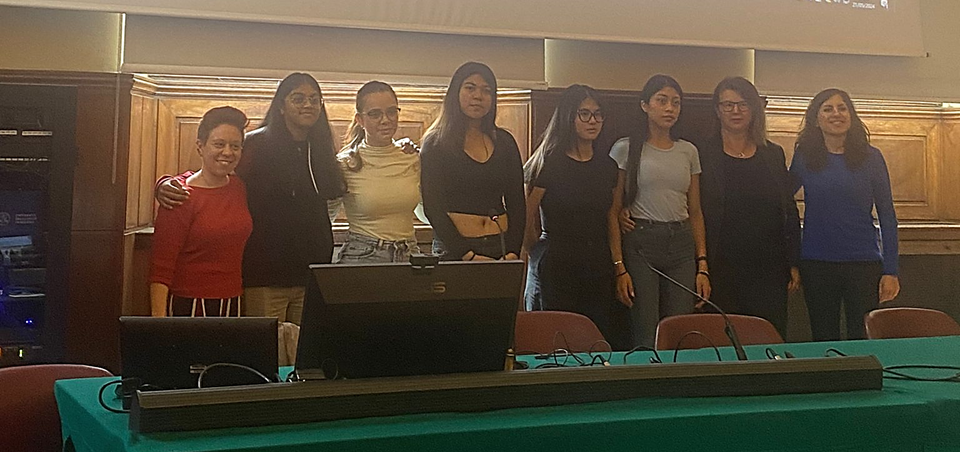
Best Analysis
Tourism in Milan - Team DataTour Milano, Falcone Righi
Team members: Camila Garzon Cifuentes, Umberto Napolitano, Edoardo Nicoletti, Luca Damato, and Andrea Sparvieri. Class 3A SIA
"Our job was to acquire data from the dataset concerning tourism in Milan and using the R programming language create graphics to represent the collected information.”
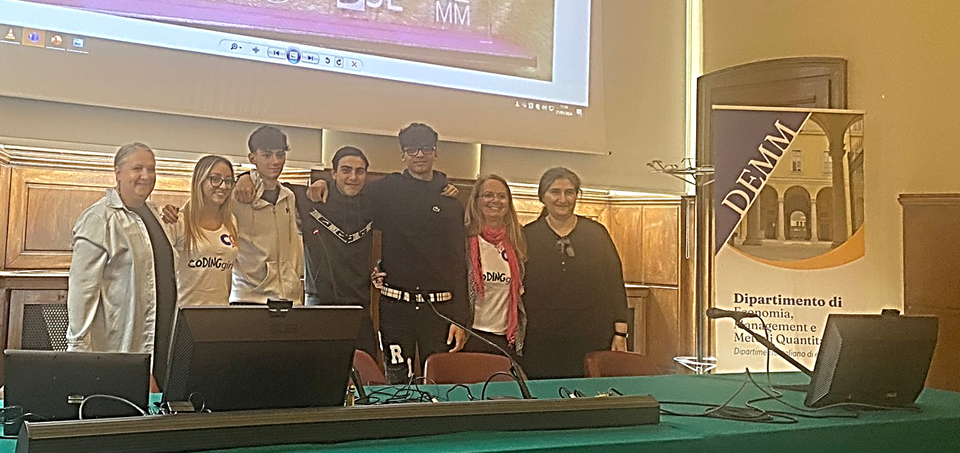
Best Presentation
Non-organised Criminality - Team Criminalità, Falcone Righi
Team members: Matteo Gramegna, Samuele Stelluto, Christian Sala, Volodymyr Hryhorus.
“Our work was based on all aspects of criminality and its evolution with a focus on our region, Lombardy.”
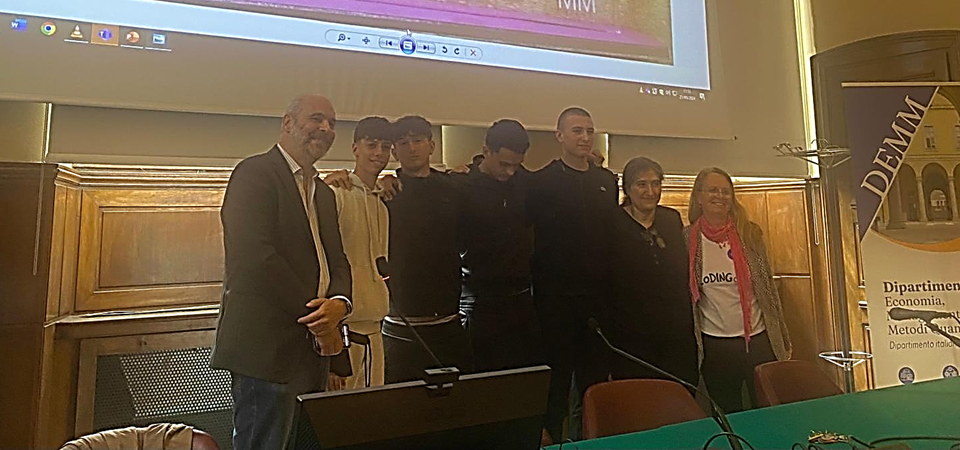
“The students were enthusiastic and had a command of the language that one would expect from university graduates and doctoral students, not sixteen-year-olds,” explains Tullia Romanelli, who followed the creathon for the Fondazione Mondo Digitale. “They addressed issues that were neither easy, nor obvious; indeed, they were often complex.”
“These phenomena exist and to address them, they must first be understood. Thank to this course, we have understood that statistics can help us better comprehend the reality that surround us,” pointed out a student.
“Speaking with the students during the lunch break following the awards ceremony, one thing stood out. They have very clear ideas about their future,” Tullia continues. “Thanks to this experience, they have begun to surmise that, especially in science, but also in everyday life, it is important to observe Gaussian curves considering median values without forgetting about the exceptions that make everything far more interesting. I hope they continue to face future challenges with the same enthusiasm and a pinch of extra statistics,” Tullia concluded.
“We would like to thank Silvia for having generously opened this world up for us,” said Cecilia Stajano. “This challenge began a long time ago. Silvia enchanted me and made me understand that if we wish to see the world, if we want to know how to make decisions, statistics provides us with an interesting viewpoint from which to set out. And now that with AI data has become gold, it is even more important to treat the data with curiosity and respect. Without knowing it, we all make assessments based on statistics. So, why don’t we really learn to manage data and not be controlled by it? This was a true gift and a commitment due to our youth to make them even wiser and freer, and thereby happier.”
This year, the Coding Girls’ “Curvature in Data Science” involved four cities: Milan, Palermo, Caserta, and Bari.


